NanoTech Security is one of a group of IT Companies started by our founder Joseph Morgan. NanoTech Computers, NanoTech Security & iRoam Studios all under the umbrella of the parent company NanoTech IT.
NanoTech Computers was the first of these companies that Joseph started as a teenager in 1995, building and servicing computers for home users and small to medium sized businesses.
In the evolving digital landscape, the term “NanoTech Security,” while drawing inspiration from the precision and innovation of nanotechnology, signifies an acute and meticulous approach to cybersecurity solutions.
Within this framework, protection measures are both expansive, covering broad systems, and precise, pinpointing the minutest vulnerabilities, much like how nanotechnology operates at the atomic or molecular level.
Empowering Small to Medium-sized Businesses with Premier Enterprise-Level Security and Support.
Leading the Future of Cybersecurity in New Zealand and Australia: Championing Robust Defence and Empowering Businesses.
Unwavering Excellence in Customer Service: Prioritising prompt and unparalleled responses to every partners need.
Unified Collaboration: Promoting a culture where teamwork drives success.
Optimal Resource Utilisation: Ensuring the highest efficiency in time and asset management.
Pioneering Innovation: Spearheading industry advancements and transformative solutions.
Unyielding Accountability and Integrity: Holding ourselves to the highest standards of honesty and responsibility.
At NanoTech Security, we’re more than just a managed cybersecurity provider. We position ourselves as your trusted IT Security partner, adeptly guiding you through the ever-evolving digital threat landscape. Our forte lies in tailoring cybersecurity strategies, ensuring they resonate with your business’s unique pulse, whether you’re a nascent enterprise or a seasoned market leader. Choose us for precision, expertise, and unwavering partnership in your cybersecurity journey.

Manage Security

Best Data Security

Cloud Security

Application Security

Data Prevention

Founder & CEO

Practice Manager

Intern – SEO & Digital Marketing

Intern – Cybersecurity Analyst
We provide a myriad of services and know getting the right support is overwhelming. Sourcing our frequently asked questions, we want to help and provide you with the service that is right for you.
Answer: Strong passwords serve as the first line of defence against unauthorised access to sensitive data and systems. With cyberattacks becoming more sophisticated, weak or easily guessable passwords present low-hanging fruit for malicious actors. A strong password, which is a combination of uppercase and lowercase letters, numbers, and special symbols, is harder to crack using brute-force methods and reduces the risk of unauthorised breaches, thereby safeguarding your digital assets.
Answer: A 'strong' password typically:
Is at least 12-16 characters long: Longer passwords provide better security against brute-force attacks.
Combines uppercase and lowercase letters: This increases the complexity and the number of potential combinations.
Includes numbers and special symbols: Again, this adds to the complexity.
Avoids easily guessable words or phrases: Refrain from using easily available information like birthdays, anniversaries, or common words.
Is unique: Avoid reusing passwords across multiple sites or services. Each password should be distinct to ensure that a breach in one system doesn’t compromise others.
To create one, start with a phrase or combination of words and mix in numbers and symbols. Using password generators can also help craft strong, random passwords.
Answer: Password management tools offer multiple benefits:
Secure Storage: They provide a centralised, encrypted vault for all passwords, ensuring they remain confidential and protected from breaches.
Complex Password Generation: Most password managers come with a built-in generator, ensuring the creation of strong and unique passwords for every account.
Ease of Access: With a password manager, users only need to remember one strong master password. The tool auto-fills login credentials, ensuring convenience without compromising security.
Regular Updates: Many password managers remind users to update passwords periodically, ensuring that login credentials remain fresh and reducing the risk of breaches.
Multi-Device Synchronisation: Password managers often sync across devices, ensuring that secure passwords are available whether you're accessing accounts from a computer, tablet, or mobile device
Answer: While no system can claim to be 100% breach-proof, modern password management tools employ robust security measures such as end-to-end encryption, zero-knowledge architecture, and multi-factor authentication. This ensures that even if a hacker gains access to the password vault, the data inside remains encrypted and useless to them. For optimal security, it's imperative to choose reputable password management solutions, keep them updated, and use a strong master password.
Answer: MFA provides an added layer of security by requiring two or more verification methods: something you know (password), something you have (a phone or hardware token), or something you are (biometrics). Given the increasing sophistication of cyberattacks, relying on passwords alone is no longer sufficient. MFA ensures that even if a password is compromised, unauthorised access remains highly challenging for attackers.
Answer: Absolutely. In fact, small businesses are often targeted more frequently because attackers assume they have weaker defenses. Cybersecurity is not just for large enterprises. Given the increasing cyber threats and the value of data, every business, irrespective of size, should prioritise cybersecurity to protect its assets, reputation, and continuity.
Answer: The shift to remote work, especially during the COVID-19 pandemic, has expanded the potential attack surface for cyber threats. With employees accessing company resources from diverse locations and devices, it becomes paramount for SMBs in New Zealand to ensure that their data, applications, and networks remain secure irrespective of where they are accessed from.
Answer: Training and Awareness form the first line of defense in cybersecurity. Even with the most advanced security solutions, a single uninformed employee can inadvertently cause breaches. Through regular training and awareness campaigns, employees can recognise threats, understand the importance of their role in data protection, and act as vigilant custodians of your company's sensitive information.
Answer: Defending against phishing attacks requires a multi-faceted approach:
Employee Training: Educate employees on recognizing phishing emails, suspicious links, and unsolicited attachments.
Email Filtering: Deploy advanced email filtering solutions that block known phishing domains and suspicious attachments.
Regular Updates: Ensure all systems and software are up-to-date, reducing vulnerability.
Multi-factor Authentication: Implement MFA, so even if login credentials are compromised, unauthorized access is prevented.
Answer: Regular updates not only provide new features but also patch vulnerabilities that might be exploited by attackers. Outdated software or devices are a gold mine for cybercriminals as they might contain known security gaps. By keeping them updated, you're essentially fortifying your digital defences and ensuring the highest level of security.
Answer: Data protection ensures:
Customer Trust: Clients trust you with their data. Safeguarding it reinforces their confidence in your business.
Regulatory Compliance: Adherence to data protection regulations avoids legal consequences and potential financial penalties.
Operational Continuity: A data breach can disrupt operations. Proactive data protection ensures smooth business functioning.
Brand Reputation: A business known for strong data protection practices stands out positively in the market.
Answer: Backups act as a safety net. In the event of data loss due to cyberattacks, natural disasters, or even human error, backups ensure that your business can quickly restore its data and continue operations with minimal downtime. Regularly scheduled and encrypted backups, stored both on-site and off-site, provide a layered defence against data loss.
Answer: BCP, or Business Continuity Planning, is a strategy that outlines how businesses will continue operating during unplanned disruptions. For SMBs, which might not have the vast resources of larger corporations, a well-thought-out BCP is crucial. It ensures minimal service disruption, maintains customer trust, and outlines clear recovery steps, making sure the business bounces back as quickly as possible.
Answer: While backups involve creating copies of data to restore lost or corrupted data, Disaster Recovery (DR) focuses on the quick restoration of IT operations after a disaster. DR encompasses more than just data—it includes systems, networks, and applications. While backups can be part of a DR strategy, DR itself is a broader approach to ensuring business continuity during and after catastrophic events.
Answer: At NanoTech Security, we understand the unique challenges and needs of SMBs. Our approach involves understanding your business operations, identifying critical areas, and then crafting a BCP tailored for your needs. With our expertise, you'll have a roadmap that ensures minimal disruptions, rapid recovery, and continued customer trust, even during unforeseen events.
Tell us about yourself and we’ll figure out the best solution for you and your organization’s needs.